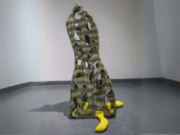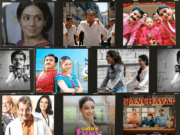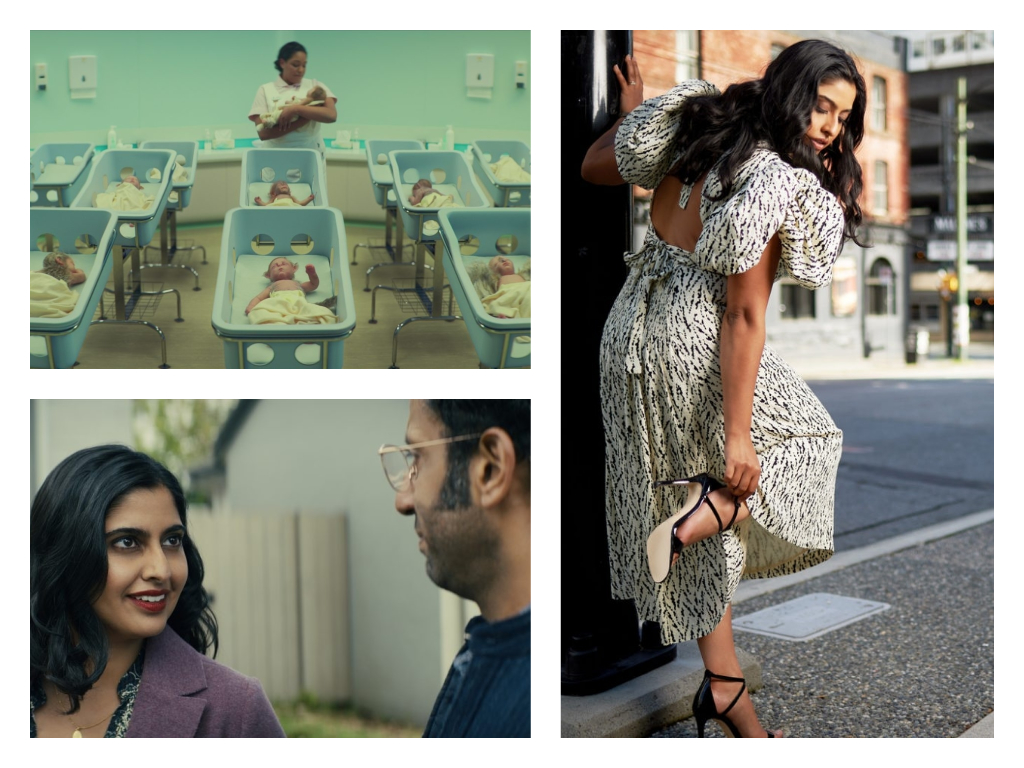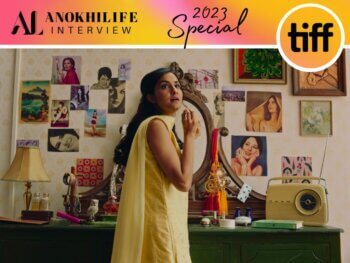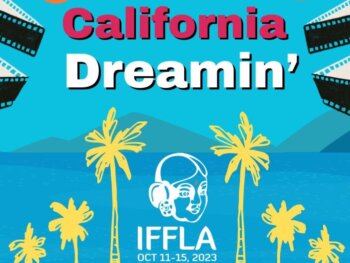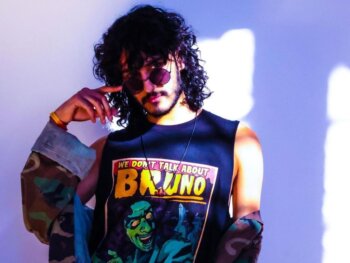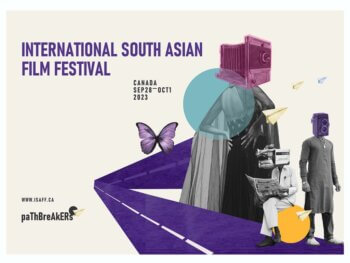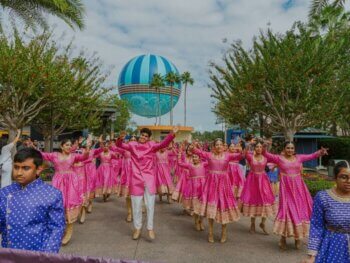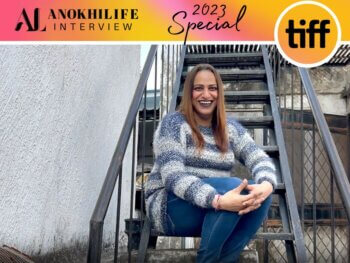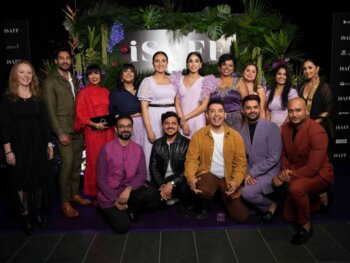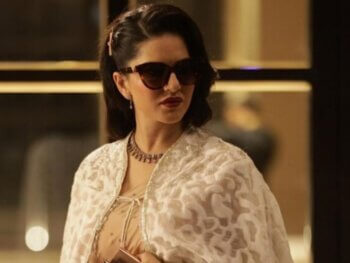The Little Mosque on the Prairie alum takes us inside her hit Netflix fantasy series Sweet Tooth, while also touching on the power of representation and fighting anti-Asian hate.
One of the breakout hits of this past, COVID-ravaged TV season was called Sweet Tooth, a Robert Downey, Jr.-produced DC Comics adaptation set in a world that — get this — has been ravaged by a devastating pandemic! Amidst all the death and chaos, a literal new breed of humanity emerges — babies born half-human, half-animal. With civilization in shambles, many of the survivors blame these hybrid creatures for the fate that befell us, and set out to hunt them. Ten years into “the Great Crumble,” a deer-boy named Gus (Christian Convery) embarks on a perilous quest out into a world that hates him, to find his mother — accompanied by reluctant mentor/bodyguard the Big Man (Nonso Anozie).
Running parallel to that story is the saga of Rani Singh (Aliza Vellani), who’s been infected with “The Sick,” and her husband Dr. Aditya Singh (Adeel Akhtar), who struggle to keep Rani alive with an experimental treatments, the cost of which puts not only their lives but their souls in jeopardy.
Anokhi Life got the chance to speak with Vancouver-native Vellani about Sweet Tooth (which Netflix has just renewed for season two, by the way), why she’s grateful that Little Mosque was her first acting gig, and the vital importance of representation on TV.
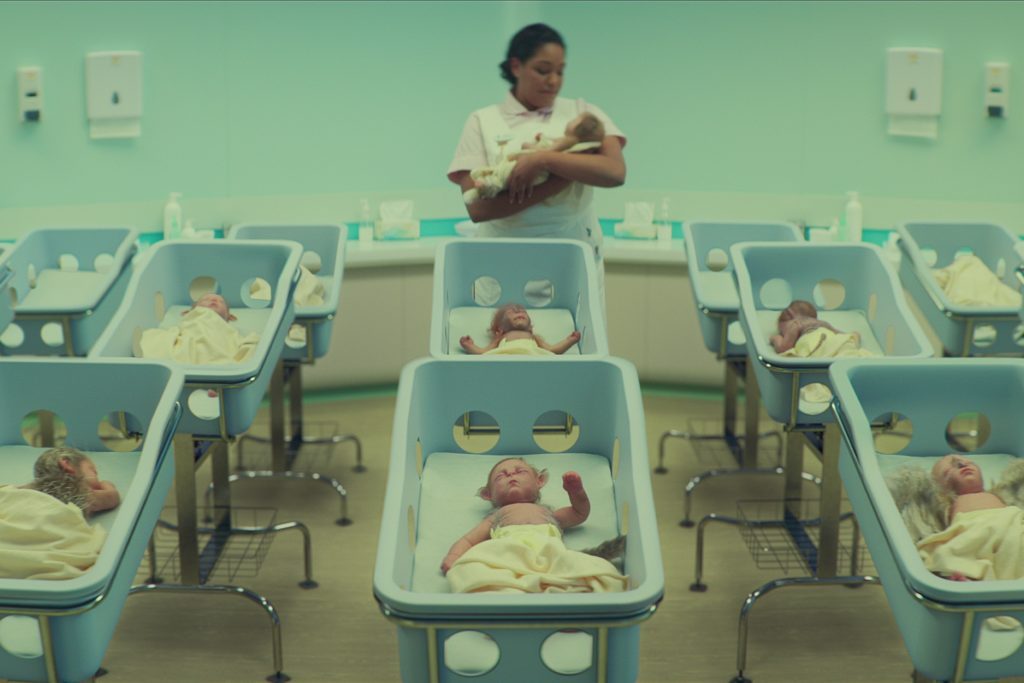
Matthew Currie: The story of Rani and Aditya is so wonderfully nuanced. They’re two good people who are in an impossible situation, forced to do the unconscionable — yet as a viewer you always sympathize with them, you always understand them . . .
Aliza Vellani: Exactly. You can really see how, when creating this season, you had to really dive into the love between these two characters. That’s what drove them throughout the entire season, is they are in an impossible situation. And what do you do in those moments except go with your gut? And your gut is telling you: “Whatever keeps my person alive, what keeps my person with me.” So it was really wonderful to explore these characters, even though it’s quite a dark storyline — to really just see a marriage that’s so rooted in love, and such an unbreakable relationship in a series I think is so incredibly important.
MC: Do you think that fantasy and sci-fi have a rare power to explore real, grounded issues — to shed new light on them in a way that you couldn’t if you were dealing with a straightforward drama?
AV: Yeah. I think for the Singh storyline, there are a lot of common elements even within my own world. I had recently gotten married when I just learned that I was going to be playing Rani Singh. And what was really lovely is getting to explore an incredibly strong marriage while also entering my own new marriage. So it was really interesting getting to explore that, but at the same time, you do get to explore it in a very new space, in a new world that’s full of new possibilities. And I think that’s what makes this show so captivating, is you are seeing [real] individuals in a very out-of-worldly space, in a very beautiful, fantastical space.
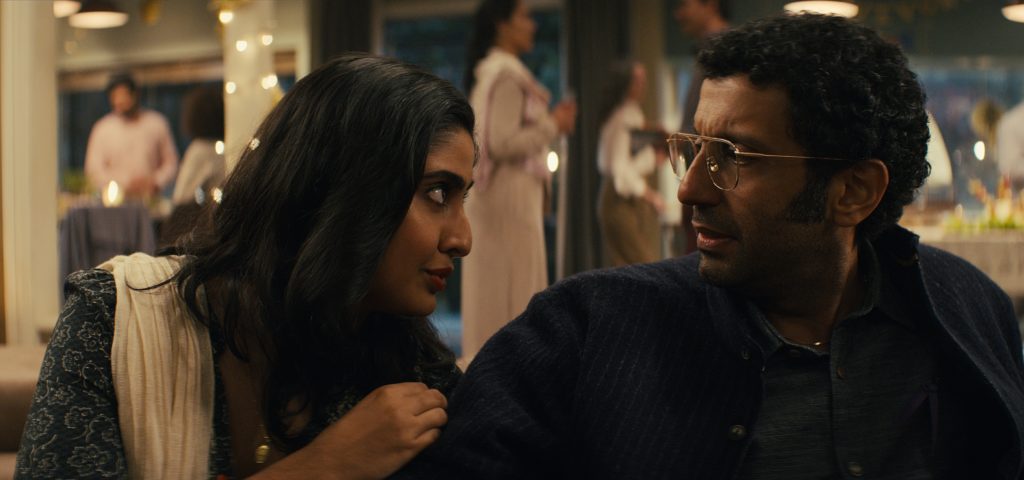
MC: The show was an immediate hit. Was it a little trippy to see yourself at No. 1 on Netflix’s “Trending” scroller?
AV: It’s lovely. We have a little group chat with all of our cast members and just waking up to hear everyone so excited, and even in other parts of the world, saying, “We hit No. 1! We’re No. 1 on Netflix!” That was such a beautiful and surreal experience to think that we hit that milestone within a few days. [Sweet Tooth] really is such a beautiful story, and I think it’s deserving of that.
MC: Obviously, representation is an issue that’s really come to the fore in the public discourse of late. The entertainment industry has been taking baby steps in the right direction, but how far away are we from actual, ideal representation?
AV: I think we’re always going to have to strive for more representation, more diversity. I don’t think we’re ever going to reach a particular milestone and say, “OK, we’re done now! There’s no more room to improve.” So I think the mindset I always try to have is: what more can we do, every single time . . . what more can I do to increase diversity, to increase representation, to help more stories get told and to encourage more people to come into this industry and try to create as many diverse things as possible?
MC: On that note, some of the greatest victories in representation in recent years have come in casting actors in roles where their ethnicity isn’t their one, defining attribute. They’re allowed to be more well-rounded.
AV: Exactly, and that’s what I’m very grateful Sweet Tooth does so incredibly well. What was amazing [in] exploring the world of the Singhs and looking into defining who they are . . . it was lovely to have elements of their culture and their faith being brought in, but not necessarily being the thing that’s part of the plot or be an aspect that they have to address; it was simply there, existing as they were in these scenes. I really, truly appreciated that. Because it provided so much authenticity to who these people were, and it acknowledged how, as South Asians, we also do struggle with that combination of belonging to our culture but also being in the world that we live in, and how do we find a balance between the two?
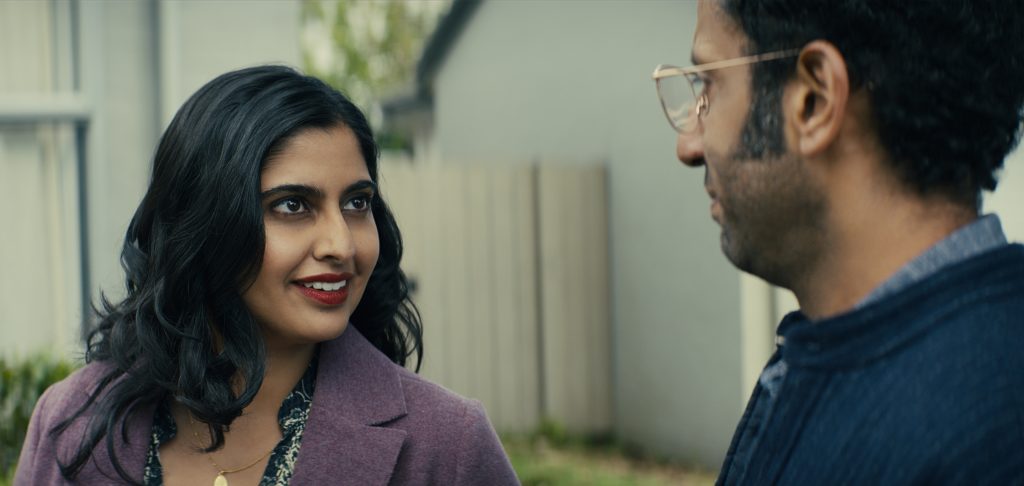
MC: Since the pandemic hit, there’s been a rise in anti-Asian hate crimes. How has that affected you? How have you been making sense of it?
AV: It’s definitely been a year that has brought to light all the hate that already existed, and also the increase of anti-Asian hate that has come in the last two years. And I think what’s really important for us — especially for me, being in Vancouver and seeing it happen at such a high rate — it is important to really look at our own individual communities. That’s how we can really make a difference . . . The way to tackle it truly is by looking at your own backyard, looking at your own community and saying, “How can I help?” I think that’s how we truly tackle this, is by acknowledging it in our own community.
MC: Even with the entertainment industry slowly moving in the right direction as far as representation, have you felt limited at all in the types of roles you’ve been allowed to play? Have you felt as though certain doors are closed to you?
AV: I’ve always said that I’ve been very privileged and very lucky to have incredible roles in my career that actually tackled that right from the beginning. Even from being cast as Layla Siddiqui on Little Mosque on the Prairie — that being the first role that I ever had — that was a series that tackled Islamophobia utilizing laughter and comedy. And that alone set me up to really tackle those issues head-on through the creative world . . .
I really think Little Mosque was the first show that taught me you can actually have several different ways of combatting intolerance, and it was so beautiful to work on a show that used light to combat that. That just meant that every character that I played [afterwards], it always had to come from a place of “How does this make a difference in the world? How does this fight some sort of intolerance?” Whether that’s through education, whether that’s through shining a light on a person that might not be seen normally . . . Sweet Tooth even does that as well. I’ve been very lucky playing Rani and being in a story that constantly has a message of, “Where does humanity stand?” This has been a beautiful project to be a part of because I think it’s really, in its core, talking about how we all want to belong to something, and how we truly come together as a society.
MC: How would you, as Aliza, fare in the post-apocalypse? Better than Rani? Worse?
AV: I’d like to think that I could be resourceful, potentially useful. But I don’t know how long I would last, in terms of the wilderness. I’d like to think I could do it, but knowing the realities of it, I’d probably only last maybe a year . . . if I’m being kind to myself [laughs].
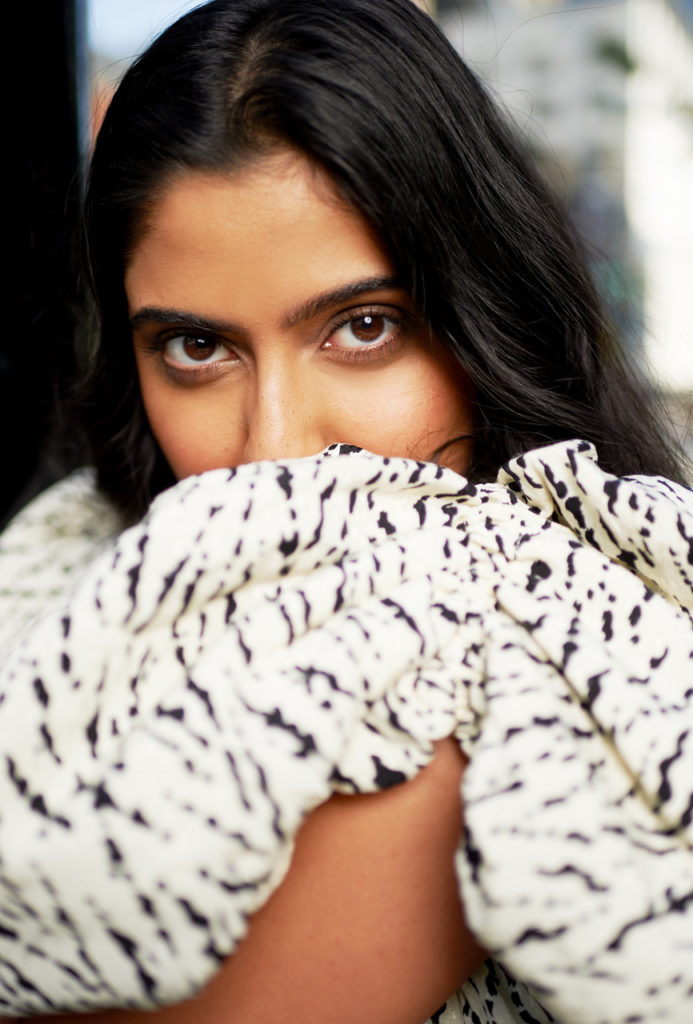
Main Image Photo Credit: Photographer: Trevor Godinho, Styling: Peter Sumera, Makeup & Hair: Happi Kaur
Matthew Currie
Author
A long-standing entertainment journalist, Currie is a graduate of the Professional Writing program at Toronto’s York University. He has spent the past number of years working as a freelancer for ANOKHI and for diverse publications such as Sharp, TV Week, CAA’s Westworld and BC Business. Currie ...


















